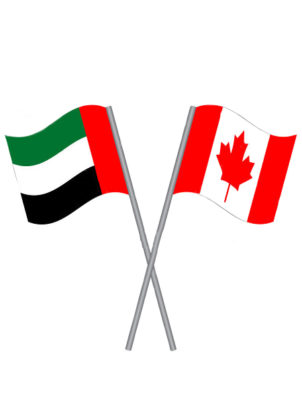

4 Jun 2017

Mark Beer, OBE, Registrar General and Co-Chief Executive of DIFC Courts was part of a “Canada Mission” organized by Dubai FDI, where delegates shared information on the benefits of doing trade between Dubai and Canada. During the mission, he spoke to a cross-section of Canadian politicians, business leaders, legal experts, and high-ranking members of the judiciary.
Central to the discussions was an overview of the innovative and connected legal system that is DIFC Courts, and how it ultimately protects international business in the event of a dispute. In the nearly ten years of operation, DIFC Courts has been relied upon by companies within the Middle East and around the world to deliver certainty offering a familiar legal system in English based on common law principles, an arbitration option in the form of DIFC-LCIA, and enforceability around the world.
What is in it for Canada?
First of all, Canada’s economy is heavily reliant on exports. In 2015, it was reported that 76.3% of Canadian exports worth US$297.7 billion were shipped to the United States under the NAFTA free trade agreement. The most important trading partners after that are China (4.1%), United Kingdom (3.3%), Japan (2.1%) respectively, and then various other countries which are a part of Europe and Asia. The Middle East is surprisingly not on the list of top trading partners.
The future of the North American Free Trade Agreement, NAFTA, recently has become uncertain, since Donald Trump stepped into office. On April 27, 2017 U.S. President Trump announced on twitter his intention to renegotiate NAFTA with Mexico and Canada, ending speculation that he might terminate it. It therefore only makes sense for Canada, the Great White North, to start to looking eastward to the Middle East.
And with the economic developments in the United Kingdom post-Brexit, Canadian exports have yet another reason to look to the UAE. After all, the USA is one of the UAE’s main trading partners, ranked third after China and India. In 2016, the US had a “$19 billion trade surplus with the UAE, the US’ third largest trade surplus globally.” (Source: UAE-Embassy.org).
On May 16, 2017 “Advantage Dubai United Arab Emirates: A Choice Market for Quebec Exporters” was held in Montréal and amongst the invitees were DIFC Courts, DIFC Authority, the UAE Embassy, Dubai Foreign Direct Investment, Dubai Exports, Dubai Multi Commodities Centre (DMCC), Department of Tourism & Commerce Marketing, and Dubai FDI. The leader of the delegation from the UAE was H.E. Fahad Al Gergawi, CEO of FDI Dubai, the Dubai Investment Development Agency. Speakers were given the stage to discuss areas of possible interest for Québec exporters.
With the aims of building links and forging deeper connections between DIFC Courts with members of the Canadian Judiciary, Mark Beer had separate meetings with Chief Justice Jacques Fournier, Chief Justice George R. Strathy, and The Hon. Regional Justice Geoffrey B. Morawetz, Superior Court of Justice to discuss connectivity and mutual areas of potential cooperation.
Look to the future
Mark Beer also visited McGill University’s Faculty of Law, one of the top law schools in the Canada, ranked third for Common Law and first for Civil Law. In fact, MᶜGill University is one of the few law schools that offers a combined Civil Law and Common Law programme. The university has been referred to as the “Law School of the Future” for its teaching of a transsystemic legal education for law students wishing to graduate in both civil and common law.
The Academy of Law, the sister law school to DIFC Courts, similarly stands at the nexus of legal training between civil and common law – recently hosting the Bridge Series of lectures to educate lawyers on each other’s respective codes – opening up multiple opportunities for future cooperation.
Click the image to watch the video